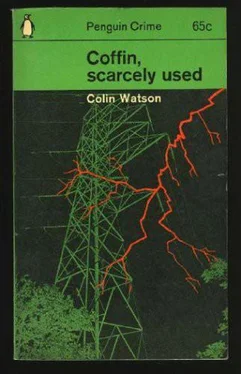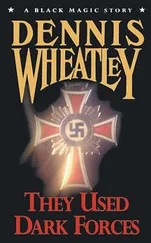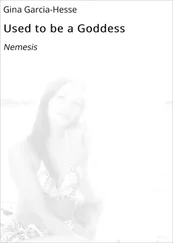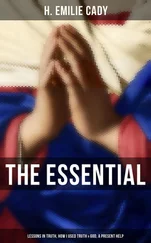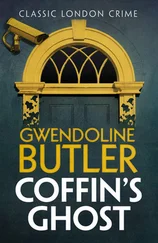“You were present that night, then?”
“It was a social occasion, simply. Of the sequel, if whatever happened to Gwill can be called a sequel to a little informal conversation and a drink or two, I know nothing. Gloss will have told you that Gwill received a telephone call from someone or other and left the house. We did not see him again.”
“You did not gather who made the call?”
“No.”
“What did you and Gloss do when Gwill failed to return, doctor?”
“We waited perhaps half an hour and then went home.”
“Was no one else there at the house?”
“No, I think not. The housekeeper was away for the night.”
“But, doctor”—Purbright leaned forward—“Gloss told me that Mr Bradlaw was there also. He arrived in his van, surely. And all three of you came back to town in it together. That is so, isn’t it?” He watched for the effect of the guess.
“Of course,” said Hillyard, blandly. “That’s what I told you myself not half a minute ago.”
The inspector stared at him. “I beg your pardon, sir. Bradlaw wasn’t mentioned until...”
“Nonsense, man; ye’re bletherin’.”
Mr Chubb had been watching the interchange between Purbright and the doctor in a dumbly pivotal manner. He found the drift of question and answer to be going further and further, in his opinion, from the immediate problem of the solicitor’s killing, and decided to bring the inquisition back firmly to the here and now.
“Had Mr Gloss any enemies, doctor?” he asked.
“He may well have had.”
“Really?” Mr Chubb was temporarily disconcerted. “Why do you say that?”
“He was a solicitor. The profession does not attract draughts of the milk of human kindness.”
“I see. But do you know of anyone specifically who wished him harm?”
“I can think of no one in particular.”
The Chief Constable was about to put another question when there was the sound of a vehicle drawing to a stop outside the house. Love hurried to the door and returned to announce the arrival of an ambulance, Dr Hooper, the police surgeon, and a photographer. Soon the room seemed more indecently over-crowded than ever. The Chief Constable managed to draw Purbright aside, asked him somewhat superfluously if he could ‘manage’, and escaped.
Half an hour later, Dr Hillyard having been dismissed with a polite injunction to be ready for further unavoidable demands upon his patience, Purbright and his sergeant were left in an empty house by the departure of corpse, police surgeon and photographer. Mrs Gloss had been collected much earlier by a shocked but comforting brother-in-law with a car.
Purbright, deservedly resting in the depths of an armchair, looked at Love and sighed. “The doctor?” he asked.
Love gave the slight grunt that he used to acknowledge axiomatic situations. “No one’s going to tell me,” he said, “that he wouldn’t know what his own pal’s assailant looked like—if there really was an assailant. There’s a street lamp almost directly outside, and that’s where Gloss was knifed. Incidentally, you’d think that whoever stabbed him must have got his sleeve pretty wet.”
“As Hillyard did,” Purbright put in.
“That’s what I mean. The bloke’s a villain; it stands out a mile.” Love was pinkly indignant. “I’d like to bet you anything you like he did Gloss and Gwill.”
“In that case,” Purbright said thoughtfully, “we might not be very far wrong in wondering if he had a hand in another little matter much earlier on.” He put one leg over the chair arm and lit a cigarette. “You know, Sid, the death that we ought to have looked into before now is one that passed off nicely with a respectable certificate, a quiet funeral and not a single question.”
“Carobleat’s, you mean?”
“Of course. Carobleat’s. As you’ll have gathered by now, Carobleat’s activities were almost certainly crooked; some of them, anyway. Behind that brokerage firm of his were several lines of business that we were trying to put a finger on at about the time he was taken ill. The excise people were convinced that smuggling was one. He had all the contacts he could want on the shipping side, and as long as he wasn’t too ambitious he would have had no difficulty in disposing of what was brought in. He had the sense to keep it manageably modest.
“Inevitably,” continued Purbright, “that sort of game would begin to include the more risky but much more profitable handling of drugs. That sounds a bit far-fetched, perhaps, but I’m told the odd packet finds its way into little ports like this fairly regularly. And there’s the hell of a lot of money to be made out of even one small parcel.”
“Do you know that he was handling drugs?” Love asked.
“Not for certain. But it would help to explain Carobleat’s connection with Hillyard. As a doctor, Hillyard would have been exceedingly useful in providing cover.”
Love sat upright suddenly. “The antiques!” he exclaimed. “I nearly suggested it earlier.”
Purbright shook his head. “No, the antiques are something else altogether. Another Carobleat legacy, I fancy, but nothing to do with drugs. What is interesting about the antiques, though, is that they are the only obvious link between the late Mr Carobleat and the late Mr Gwill.”
“Except Mrs Carobleat.”
“Ah...” Purbright reflected. Then he asked: “Do you happen to know Shropshire at all, Sid?”
The sergeant frowned. “I once went through that way on a trip to Colwyn Bay or somewhere. When I was a kid, that was.”
“Never mind. No, as I was saying, the antiques’ do suggest connexions. A councillor’s crusading zeal; the advertising columns of a newspaper; a doctor’s house; and an undertaker who does building jobs with promptitude and tact. What a pity so few good syndicates can hang together for very long.”
Reluctantly pulling himself out of his chair, Purbright walked to the window and peered between the curtains. “Manning ought to be here before long. I think he might as well come inside for the night. There’s no point in playing sentries in weather like this.” He turned. “By the way, did you see a phone anywhere about?”
“Just outside this room, on a table.”
When Purbright returned five minutes later, he announced that he had rung the Chief Constable, that Dr Hillyard would be arrested the next day, and that they both might as well go home to bed as soon as the tardy Constable Manning made an appearance.
“Incidentally,” he added, “I only hope he lasts the night.”
Love looked blank. “Who? Manning?”
“No, Hillyard. He’ll be safe once we can get him into a cell tomorrow, of course, but passions seem to be running high.” Purbright examined his knuckles, then looked up at the sergeant. “What do you suggest we charge him with?”
“What, as well as doing Gloss?”
Purbright shook his head. “We haven’t enough to charge Hillyard with that. Not at the moment. But we’ll have to get him into custody somehow.” He slowly paced the length of the room and stood looking at a large, slightly fly-blown engraving of a barrister ancestor of Rodney Gloss. He turned. “I know—living on immoral earnings. How’s that?”
The bewildered sergeant regarded Purbright with something like alarm.
“You do see what we’re after?” Purbright asked him gently.
Love made no reply. Footsteps halted outside and there was a heavy knock on the front door. Purbright lifted a curtain aside. “Ah, our Mr Manning,” he announced gratefully. “Let’s go home.”
As they turned out of the gate a few minutes later, Purbright said with a tinge of repentance in his voice: “You didn’t think I was pulling your leg about the immoral earnings charge, did you? It will stick, all right.”
Читать дальше
